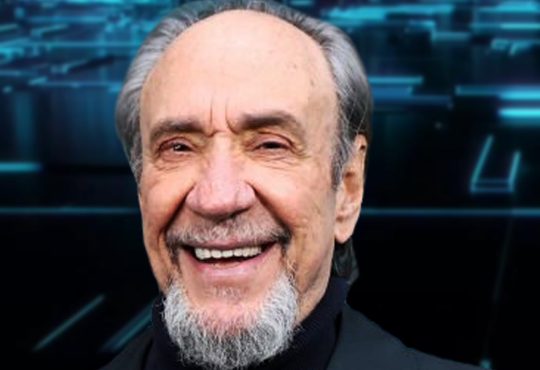‘The Chair’ Puts Sandra Oh in the Hot Seat as a Stressed-Out College Professor
Ji-Yoon Kim’s young daughter Ju-Ju has an important question: Why does her mother, who runs the English department at a prestigious New England liberal arts college, use the title of “Doctor.” Ji-Yoon tries explaining how her love of literature led to a Ph.D. and a career in academia, but Ju-Ju cuts to the heart of the matter, asking, “But why are you a doctor? You never help anybody.”
Ji-Yoon (Sandra Oh) is rendered speechless in the moment, though she spends much of the new Netflix comedy The Chair arguing that her department does help people. Even when the world is on fire, she repeatedly suggests, there is value to learning critical thinking and finding deeper meaning in how we communicate with one another. But she also acknowledges that it’s an uphill battle. She doesn’t blame a hypothetical student who might ask, “Why am I scanning this sonnet when there are so many things to be worried about?”
Created by actor Amanda Peet (Brockmire) and Annie Julia Wyman, The Chair wrestles with these questions throughout its six-episode debut season. Ji-Yoon begins her job at the fictional Pembroke University with a warning from its dean, Paul Larson (David Morse), that English enrollments are way down, and the only way for the department to survive is by getting rid of elderly, long-tenured professors like fiery Chaucer expert Joan Hambling (Holland Taylor) and smugly stubborn Elliot Rentz (Bob Balaban). She’s struggling to push through tenure for the department’s rising star Yaz McKay (Nana Mensah) — like Ji-Yoon, a rare woman of color in authority at Pembroke — while best friend Bill Dobbs (Jay Duplass) gets into hot water when a mock Hitler salute he does during a lecture on fascism versus absurdism goes viral.
“I don’t feel like I inherited an English department,” she laments at one point. “I feel like someone handed me a ticking time bomb because they wanted to make sure a woman was holding it when it explodes.”
Peet and Wyman have these weighty issues on their minds and more, making The Chair one of the year’s more thematically ambitious shows. But they’re also trying to juggle too much, often losing track of the characters who are asking the same questions their creators are. And despite an appealing cast, The Chair often runs the risk of falling victim to the same “why worry about these issues right now?” questions that Ji-Yoon can’t always satisfyingly answer.
It’s not hard to imagine a version of this show made a few years back where Bill — a recent widower whose life is a disaster, but who gets to coast on goodwill thanks to the beloved novels he published earlier in his career — was the central character, and the wholly sympathetic victim of an unfair “cancel culture” mob. Here, he’s very much secondary to Ji-Yoon (and often another obstacle in her path to enjoying the titular job), but the show is still largely on his side. There’s no ambiguity to the Hitler salute moment, or to the response of the progressive student body: It’s a split-second gesture taken out of context, and while Bill does himself no favors in responding to the kids’ outrage, the protesters are presented as being just as exasperating as bean-counters like Larson, who wants Ji-Yoon to let a famous actor(*) give the department’s annual distinguished lecture. The show also frequently uses Duplass for broad slapstick — motor vehicles are Bill’s kryptonite — with mixed results. The comedy tends to be more effective the farther we get from the center of the the narrative. In particular, the magnificent Holland Taylor is a joy as usual as the erudite but blunt Joan, who’s as comfortable delivering a stirring defense of Chaucher(**) as she is discussing sexual favors she granted to some of Ji-Yoon’s predecessors.
(*) No spoilers on who it is, but I will offer three hints: 1) He has an actual history of English scholarship prior to his acting career; 2) He has acted with Amanda Peet once in the past; and 3) This is at least the third time he has very effectively satirized himself on a television comedy.
(**) Said defense acknowledges all the scatological humor in The Canterbury Tales, which feels fitting for a show that’s not averse to a fart joke now and then.
Ji-Yoon is very clearly the story’s main character, yet its interest is much less in her as a person than as a symbol of all that’s wrong with academia, and all that could be made right if anyone were willing to listen. She has a strained relationship with the adopted Ju-Ju (Everly Carganilla), who terrorizes babysitters and often insists that Ji-Yoon isn’t her “real” mother, and there’s talk of a relationship she abandoned when it conflicted with her career, but what spark the character has comes more from Sandra Oh than from the material she’s given. It often feels like crucial steps are skipped in her arc, in both her personal relationship with Bill and in more professional situations like how her students are responding to all the bad things happening on her watch as department chair.
Ji-Yoon is meant to be a flawed hero, and there’s a sense from the start that perhaps she’s not as ready to tackle this job as she wants to believe she is. Similarly, The Chair has goals it’s only sometimes equipped to achieve, even though its overall talent level keeps things interesting.
The Chair premieres August 20th on Netflix. I’ve seen all six episodes.







